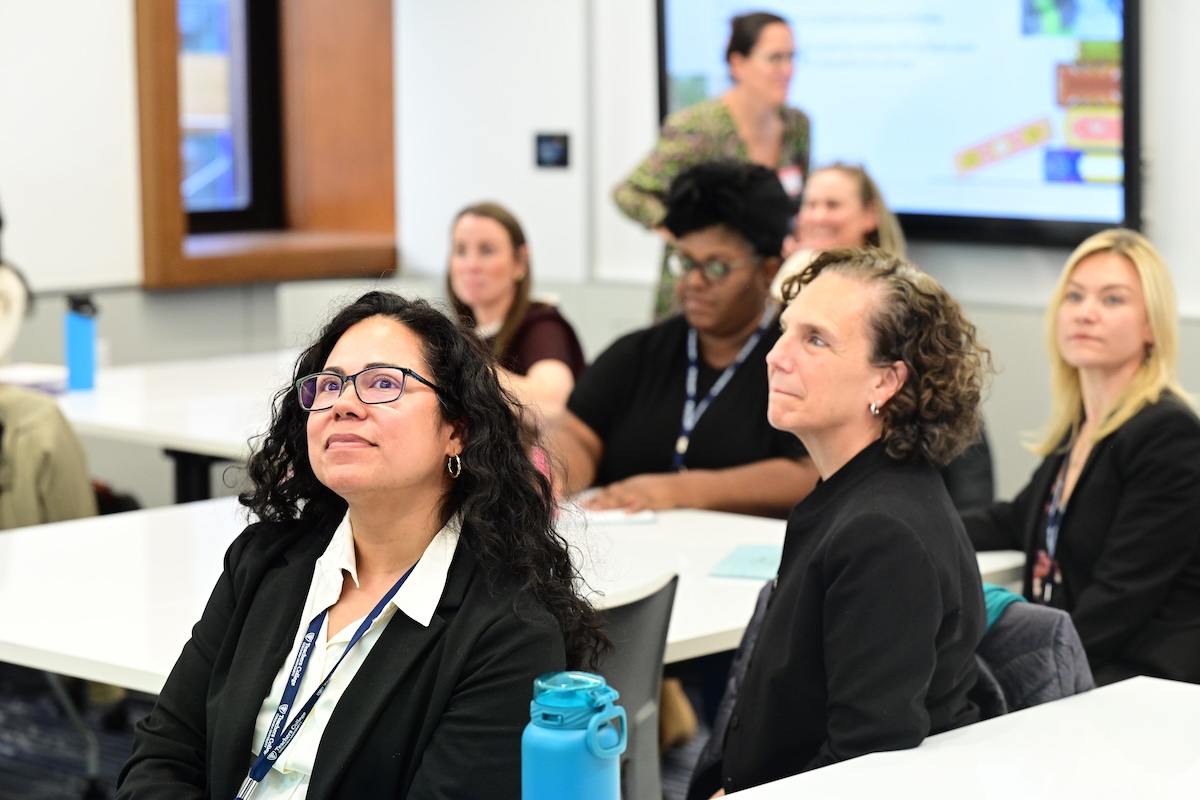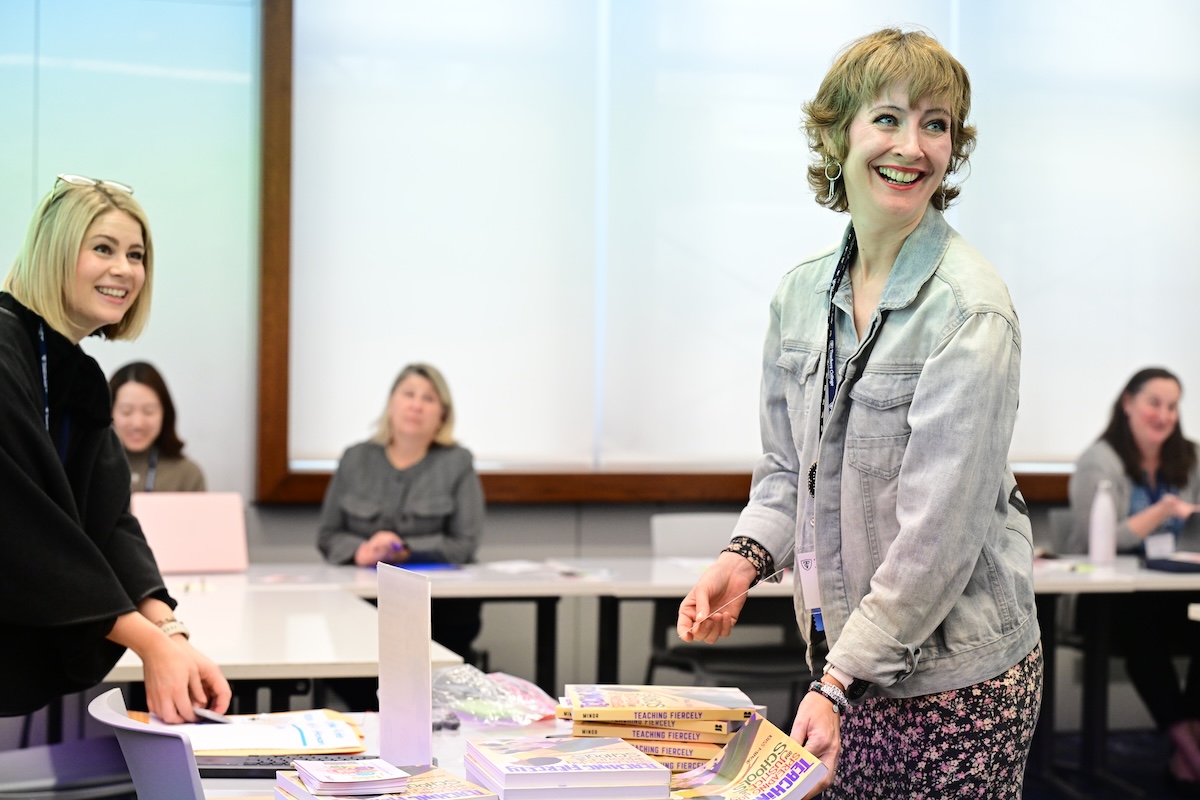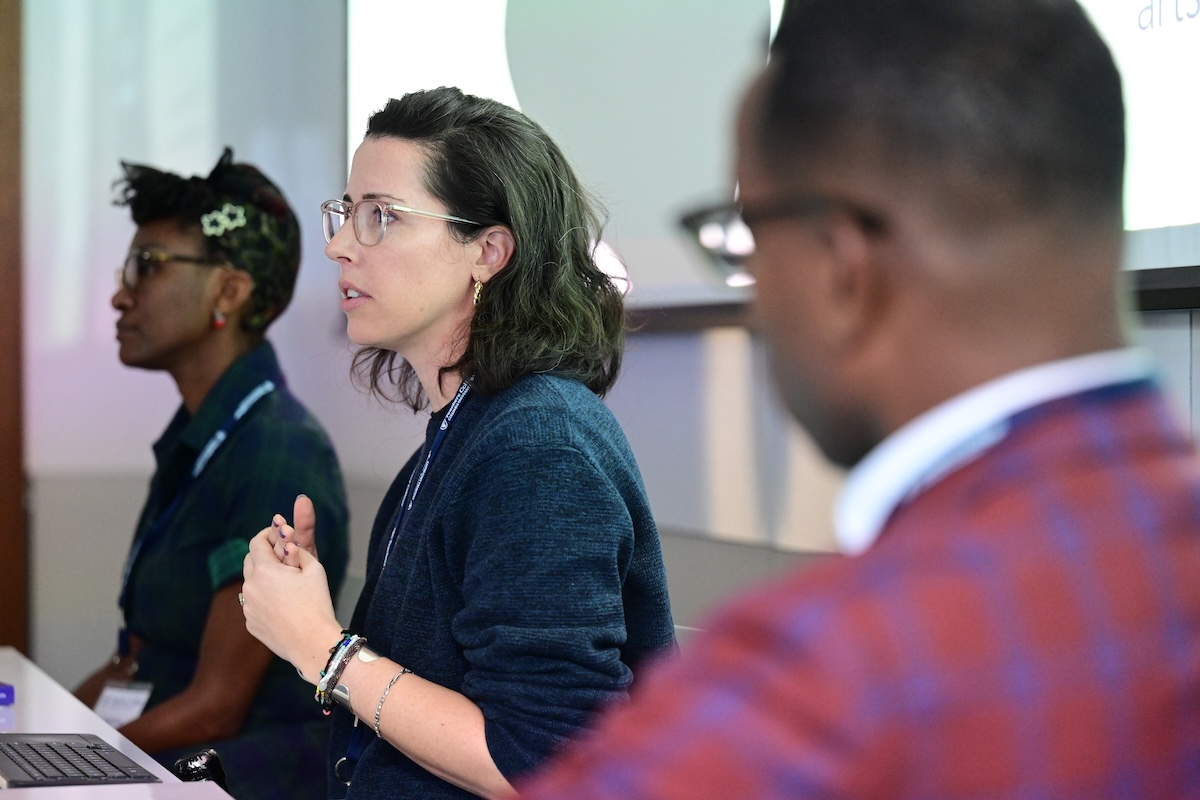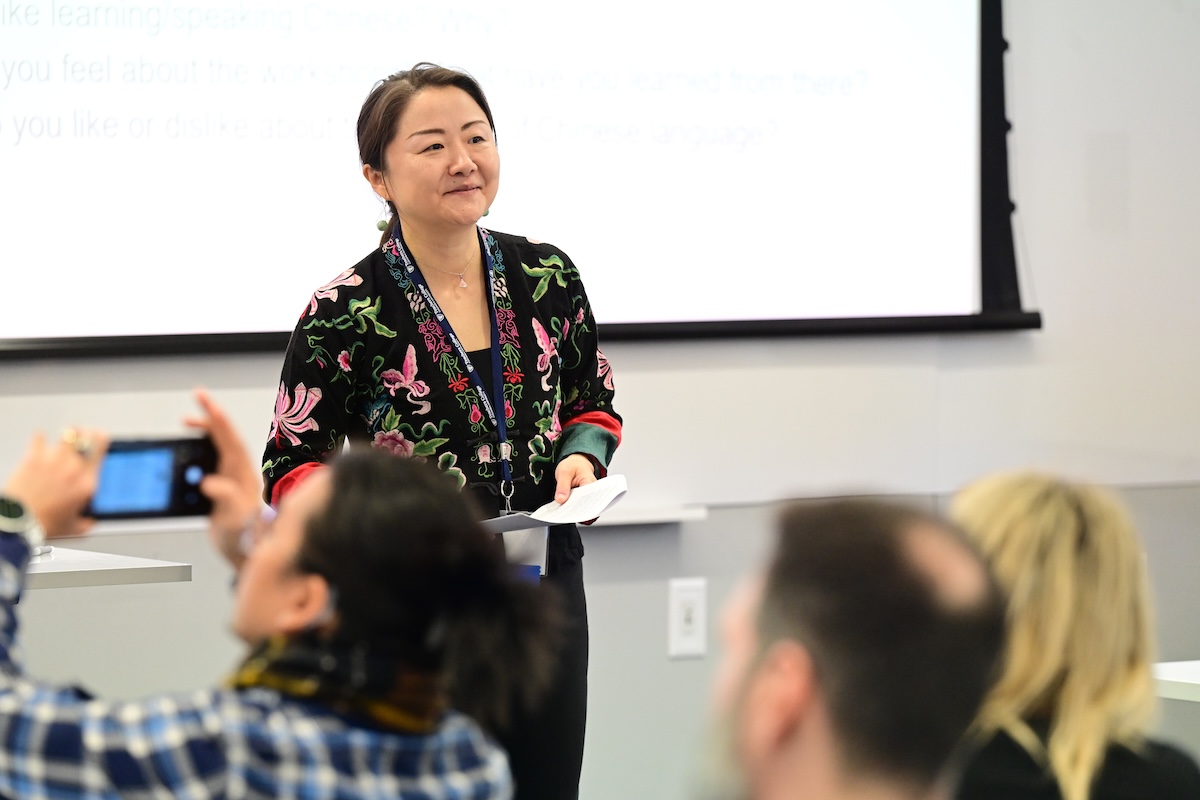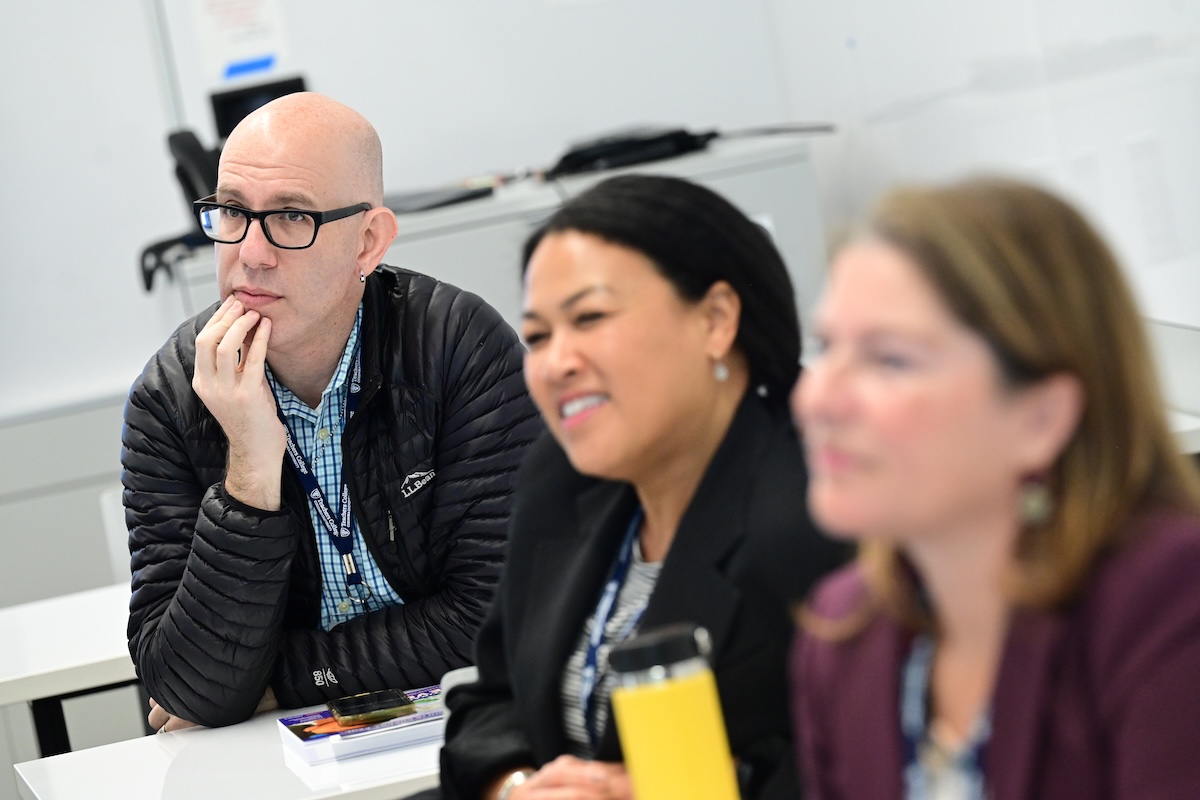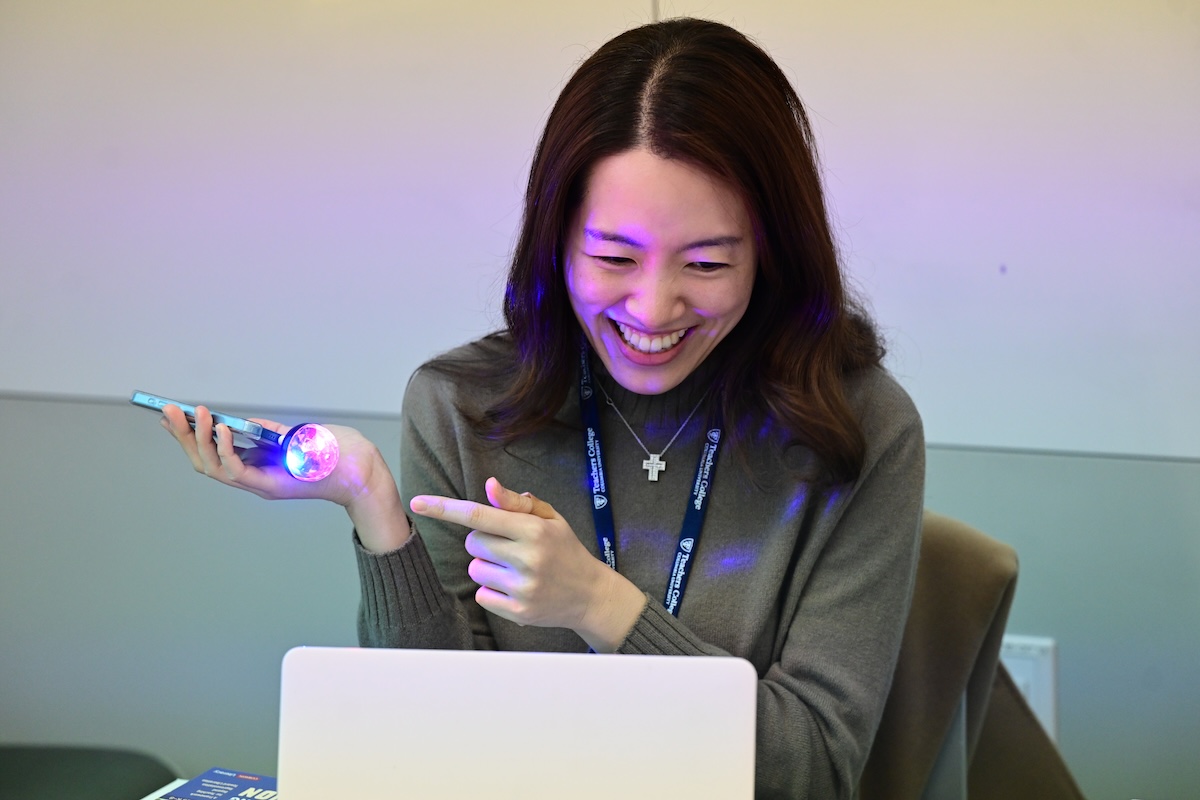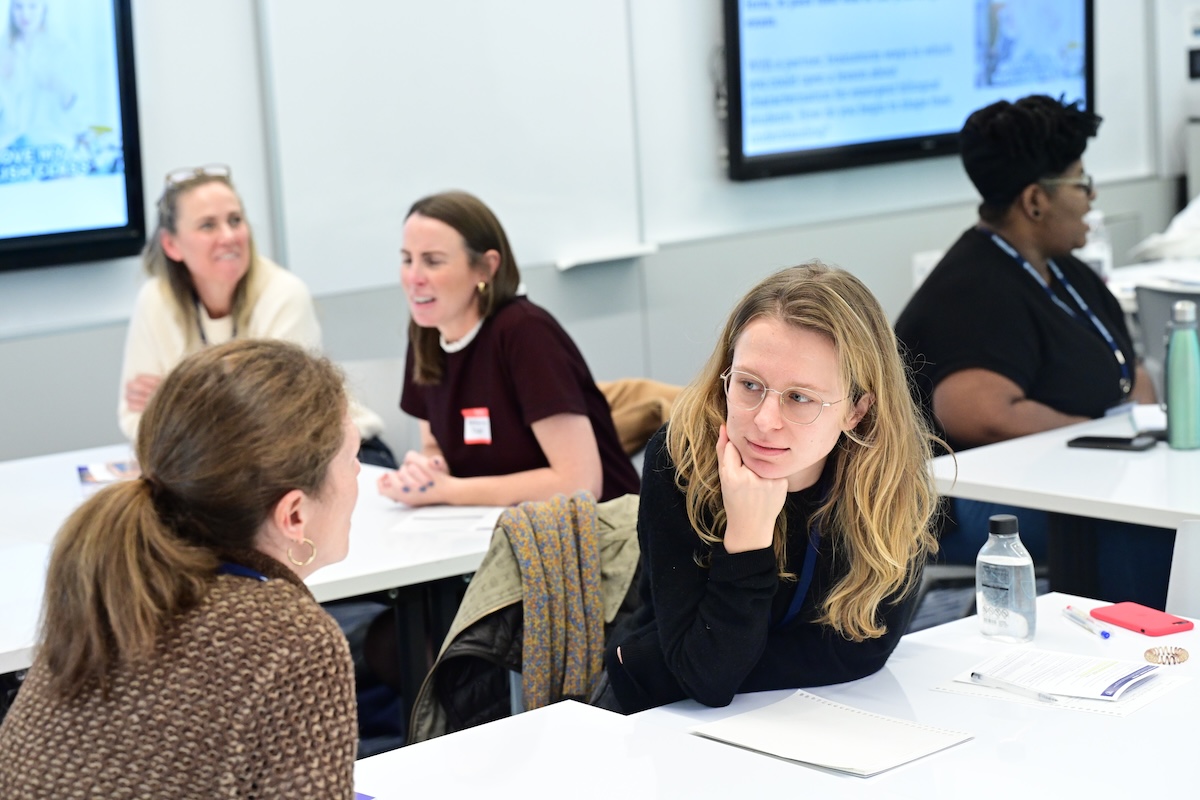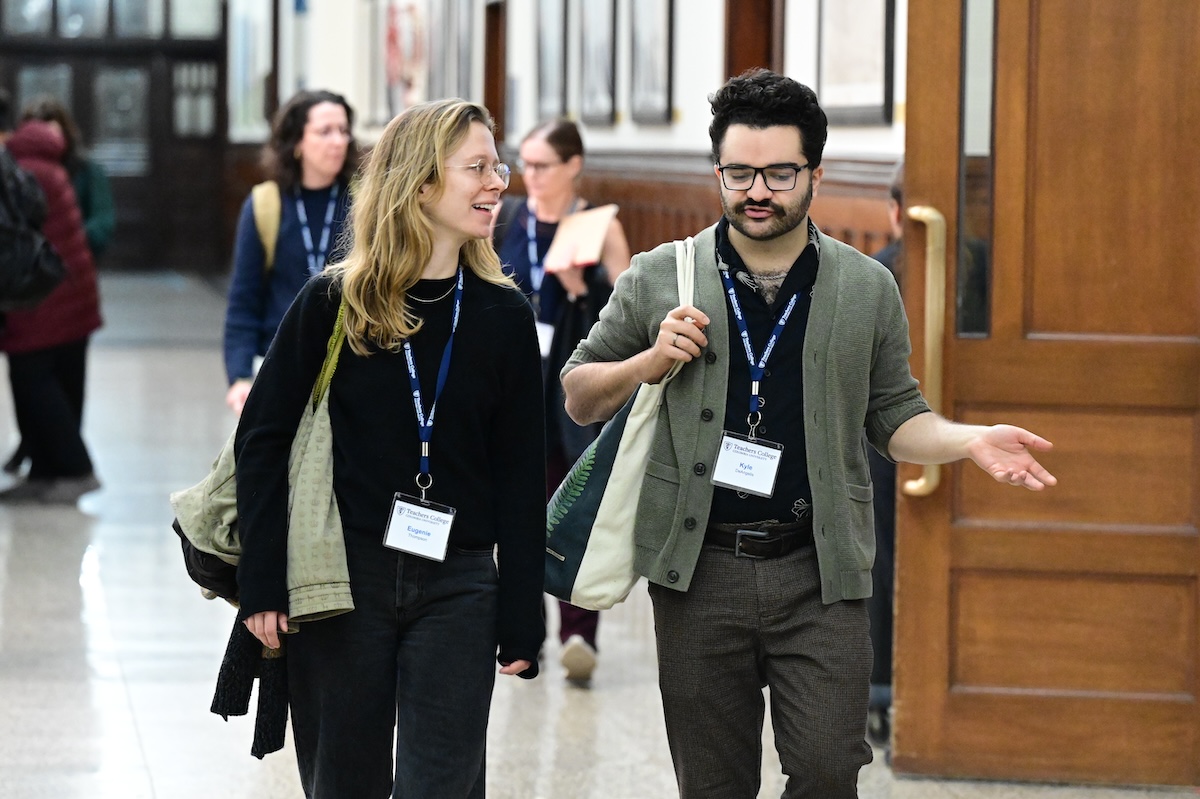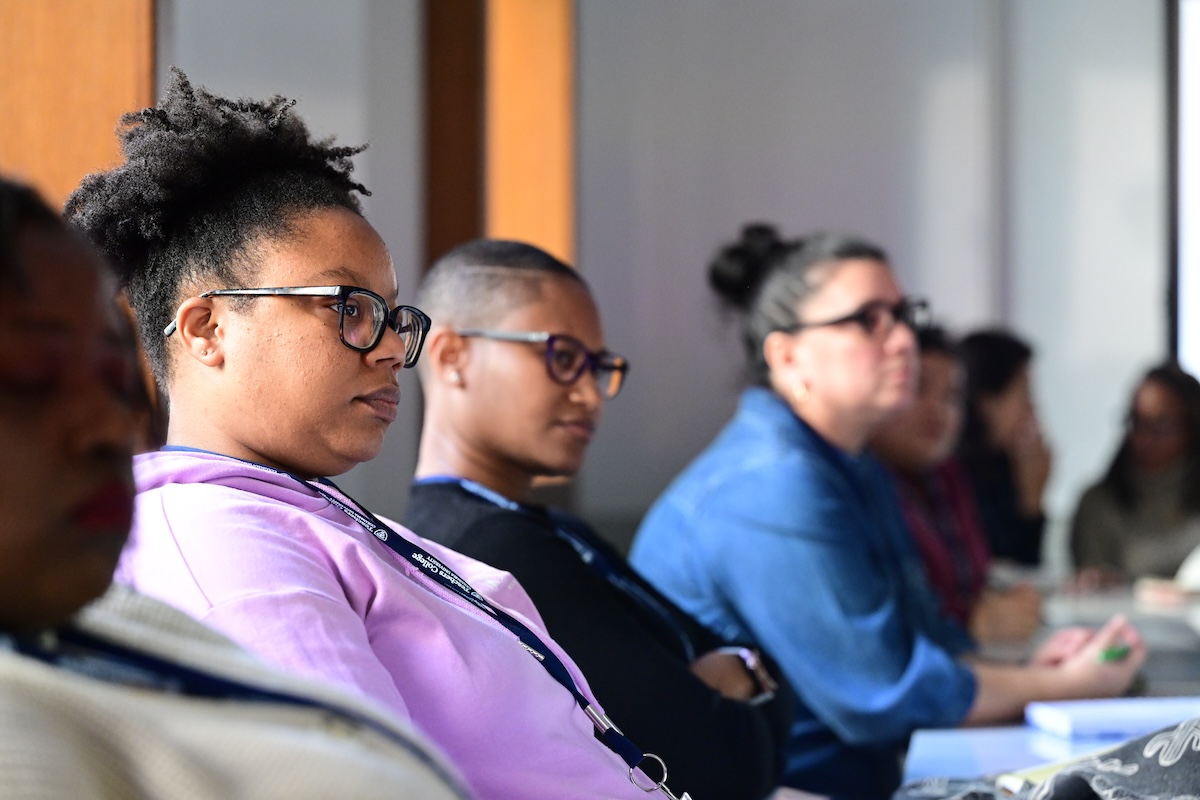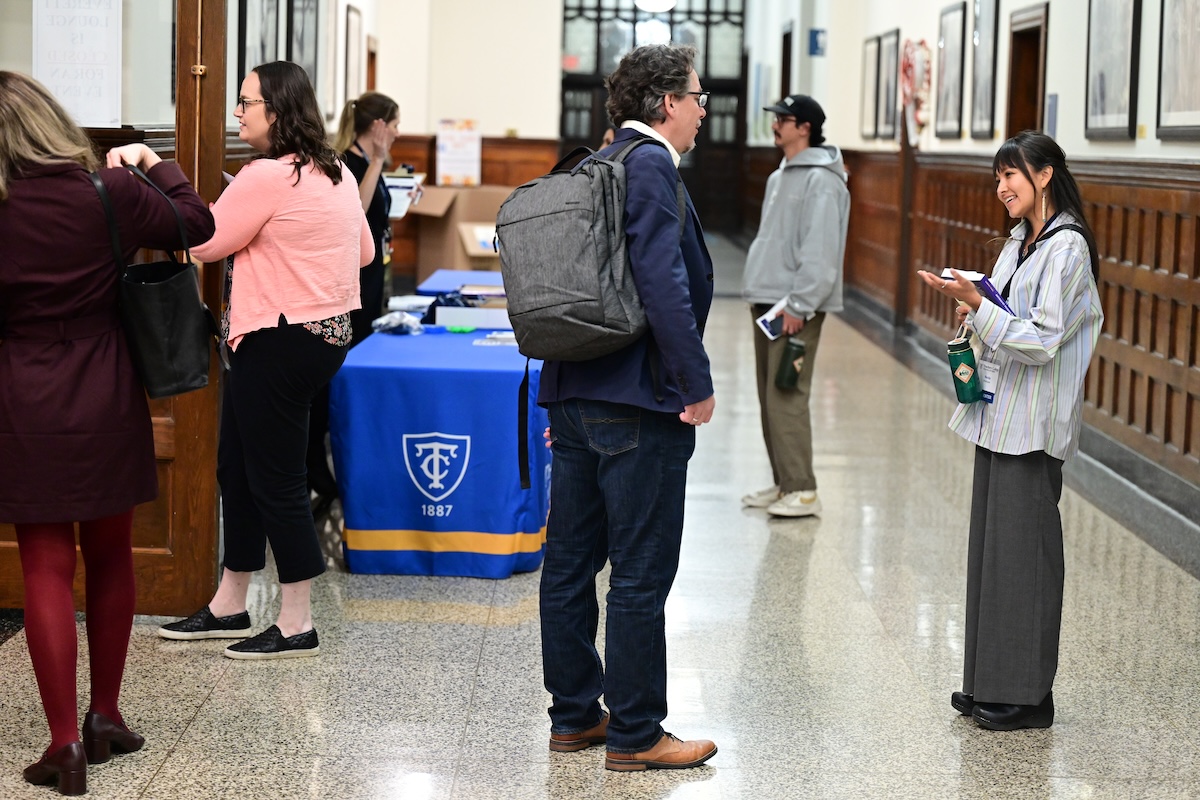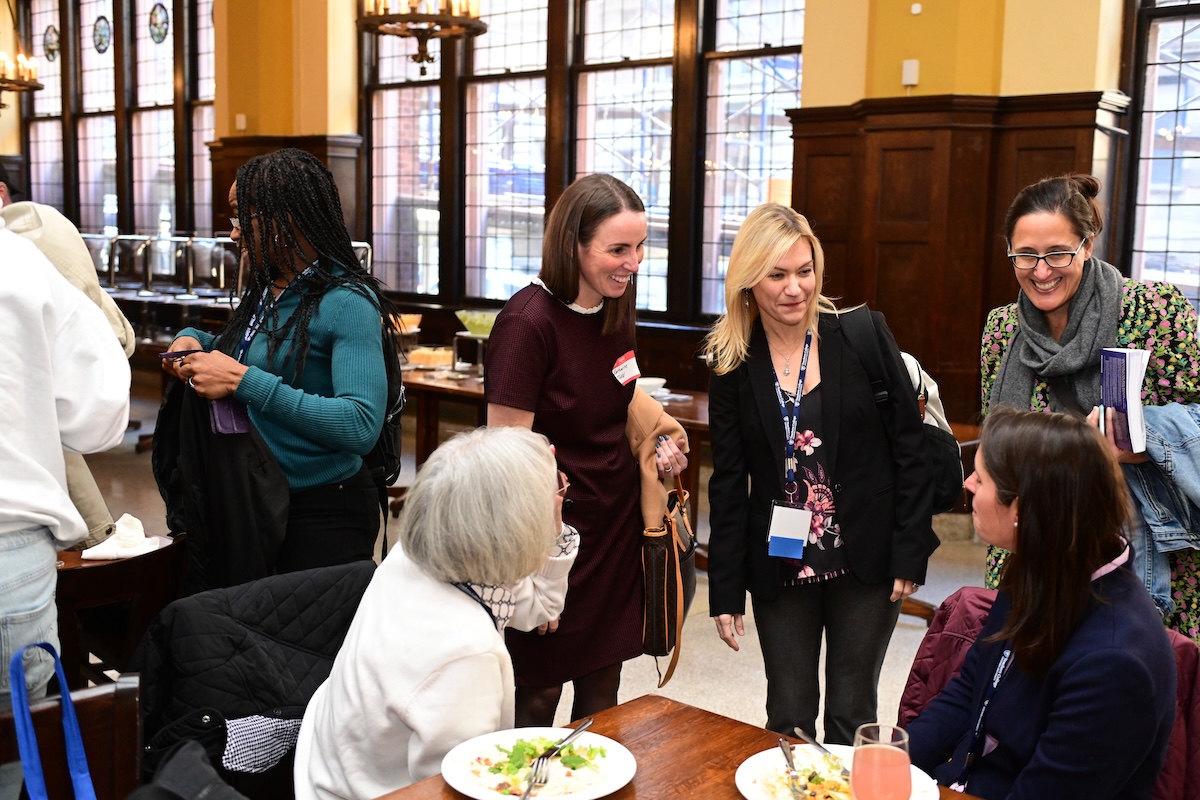Just a week after the 2024 Presidential election — which left many educators with serious concerns about how the results will impact the profession — teachers, administrators and teacher educators convened at TC for a day of empowering discussion and community building at “Rejuvenating Our Praxis: Sharing Critical Hope,” a conference hosted by the College’s Office of Teacher Education featuring TC alumni and friends who shared their curriculum, pedagogy, research or advocacy in sessions designed to maximize educator-to-educator discussion.
Reflecting the College’s commitment to social justice and teacher education, the day’s programming offered hopeful solutions to some of the challenges educators face, while also showcasing the inspiring work that has come from the TC community and providing networking opportunities.
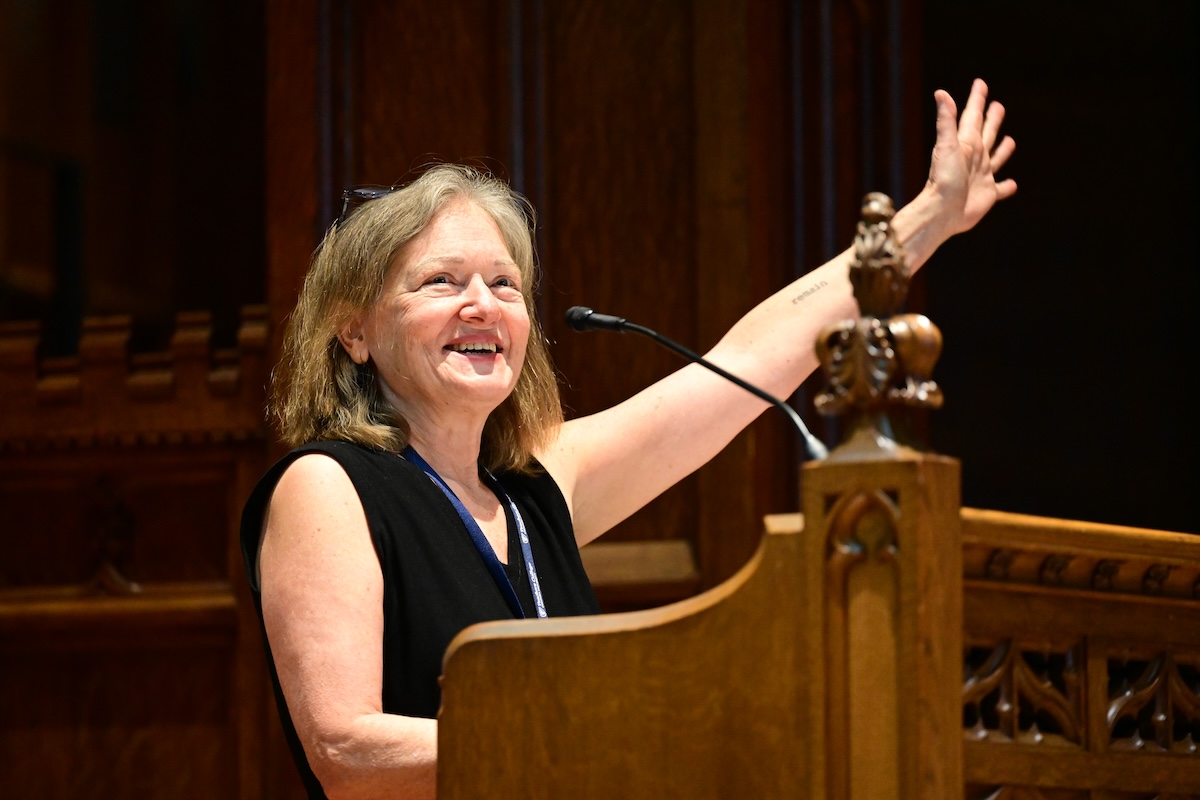
Celia Oyler, Vice Dean for Teacher Education. (Photo: Chris Taggart)
The day began with an acknowledgment of the struggles teachers are facing in the field but also the power that educators hold. “It is our job to help people learn how to be together in the world,” said Celia Oyler, Vice Dean for Teacher Education, in her remarks. “This is an opportunity to reclaim the space and the expertise in the face of large-scale forces that would have us teaching otherwise.”
Rachel Talbert, a lecturer in TC’s Early Childhood Education program, demonstrated this idea of reclamation by replacing a land acknowledgement with land-based learning. Through sharing a clip from the curriculum she developed in partnership with the Lenape Center, Talbert ensured that the Lenape people provided an introduction to Lenape land — an important distinction for Talbert in fostering truly inclusive dialogue.
Welcoming the audience, TC’s KerryAnn O’Meara — Vice President for Academic Affairs, Provost and Dean of the College — emphasized the College’s dedication to social justice and “a holistic approach to education,” something that continues to be important during a challenging time for teachers where many are struggling with their mental health while schools are struggling to recruit and retain teachers of color.
O’Meara urged attendees to “pause and share generous thinking with each other,” while creating innovative solutions to complex problems.
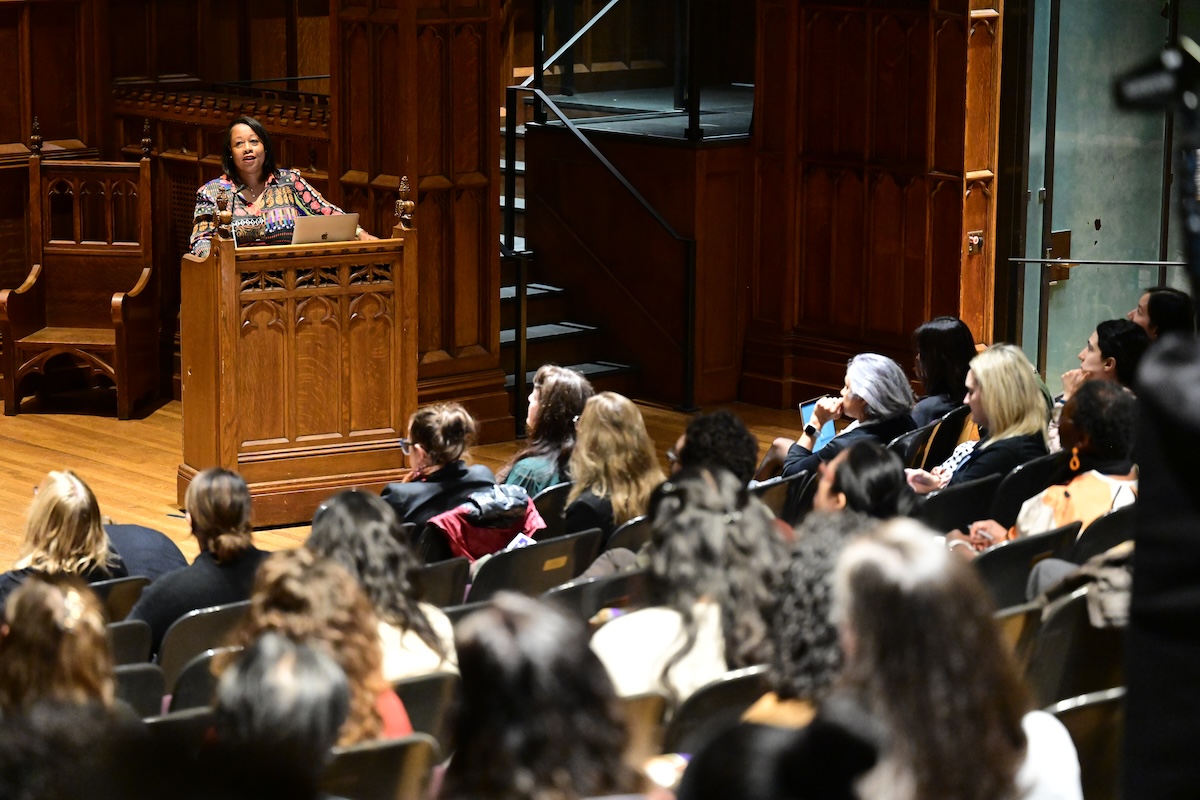
Sonja Cherry-Paul addressing the audience. (Photo: Chris Taggart)
Fostering justice through antiracist teaching
Continuing the theme of critical hope, which means moving towards a more just future by recognizing the challenges we're facing today, Sonja Cherry-Paul (Ed.D. ’19) — an educator with 20 years of classroom experience, New York Times bestselling author, and founder of RED Clay Educators — demonstrated how teachers can “reimagine a just world” in a time when “the classroom is a site for political struggle” in her plenary address. She connected the current efforts to remove diversity from the curriculum to a long history of racism in education policy and offered guidance to become antiracist teachers.
In sharing anecdotes of how the book she adapted, Stamped (For Kids): Racism, Antiracism, and You, which introduces young people to the history of racism and teaches them how to to become antiracist thinkers, was willfully misunderstood by people in power like Senator Ted Cruz, Cherry-Paul showcased how master scripting is used to “deny and discredit the truth.”
Despite these challenges, Cherry-Paul still continues her discipline of hope and she encouraged the audience to do the same. “In a world that often fails to hold fast to a vision of teaching and learning for liberation, I urge all of us to be radical,” she said. “Refuse to allow anyone to dismiss this work as meaningless. Like a dandelion seed, allow a gust of wind to carry you to fertile ground and take root, believing firmly that antiracist teaching is not about uniformity, it's about possibility.”
Sparking deep discussion and coalition building
Throughout the day, attendees had the opportunity to join one of 19 concurrent breakout sessions which ranged from book talks and curriculum presentations to panels and interactive workshops. The topics were just as diverse as formats: One panel discussion brought together four educators who shared the ways they advocate for students and themselves; another session demonstrated the ways you can bring joy and play into the classroom; and yet another presented personal research on the wisdom of Black and Indigenous teachers as well as the challenges they endure.
We need your voice. We need your wisdom. We need ways to collectively share our knowledge and our passions.
Each session was designed to foster group discussion so that audience members could learn not only from presenters but from each other, while presenters gleaned new insights into their work. Altogether, the breakout sessions showed the myriad ways educators can have agency in their careers and better connect with their students.
“I want to make sure … that there isn’t this divide between the decision makers and the implementers,” said Suzanne Cort-Alburez, a master’s student in the Early Childhood Education program, discussing the potential of teacher-led schools. “We want that to be more seamless.”
Another constant was the presence of TC scholars. More than 35 presenters at “Rejuvenating Our Praxis” either graduated from the College or are current students, truly showcasing the depth and breadth of a TC education.
Self-healing is the key to enduring challenging times
Closing out an insightful and thought-provoking day, alumnus Angel Acosta (Ed.D. ’20) demonstrated the power of healing centered pedagogies — something he studied in-depth during his time at TC and beyond — to address teacher burnout and support students in school by promoting a cooperative and restorative way of being. “The key thing here, in the face of the challenges that are before us, is to get a more grounded perspective,” said Acosta, founder of the Acosta Institute.
Covering everything from the long history of healing-centered progressive movements to trauma studies, Acosta’s remarks demonstrated that the struggle teachers are enduring is difficult but not without hope. “One of the most powerful things we can do right now is develop the capacity to not just endure these times, but also do deep self-healing work and be in this process of wounded healing,” he said.
